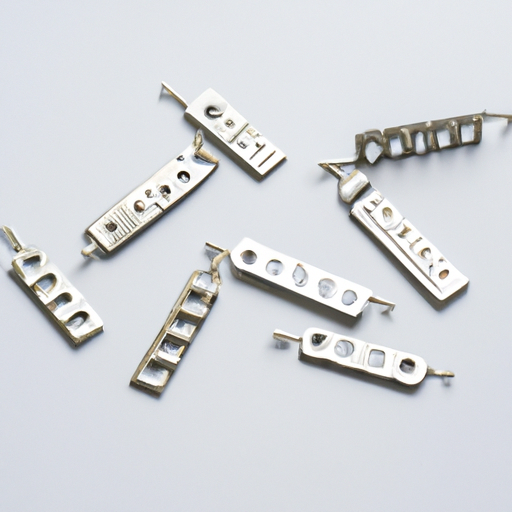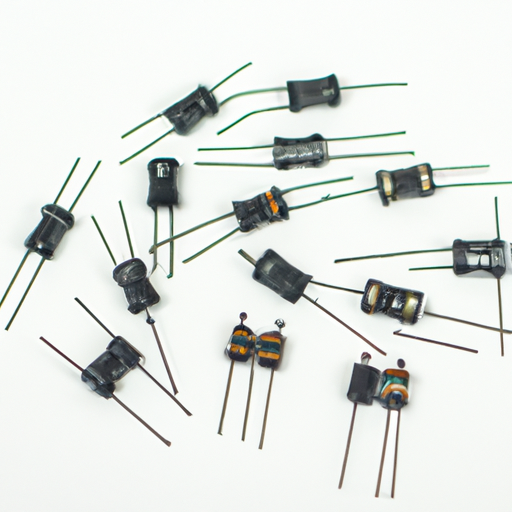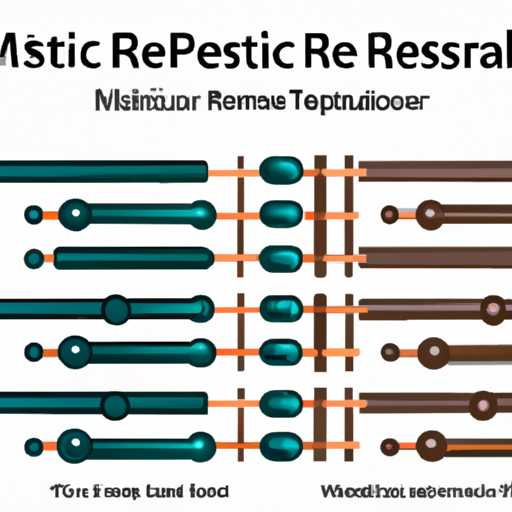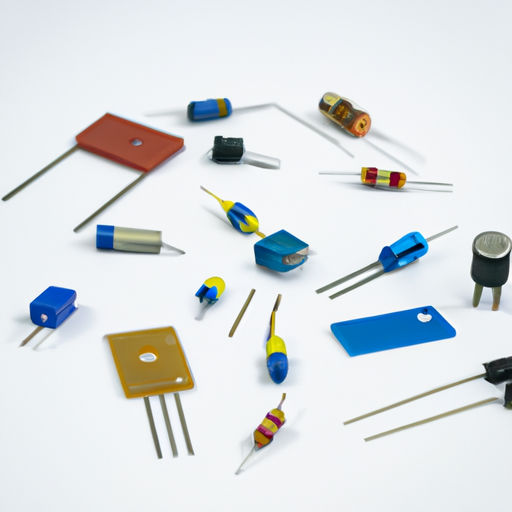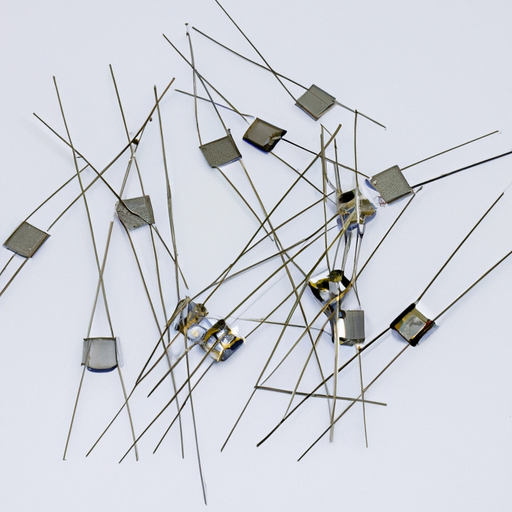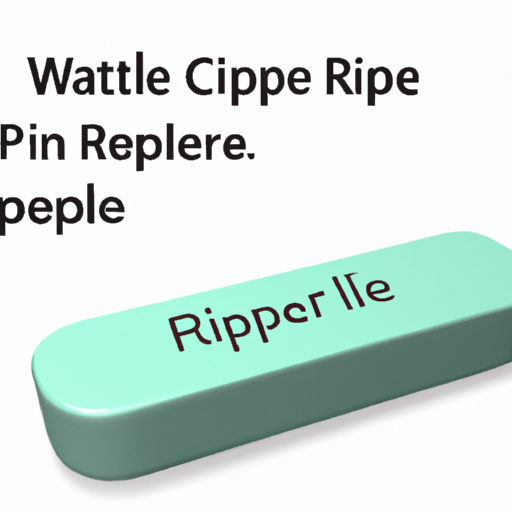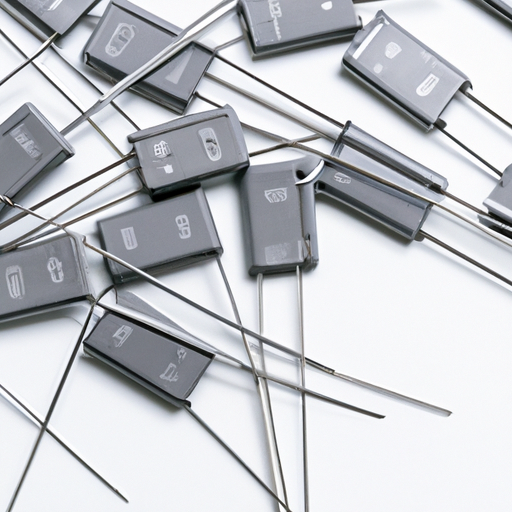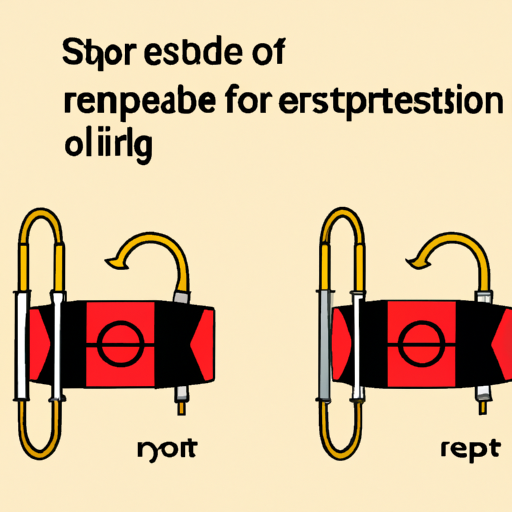What are the Product Features of Aluminum Shell Resistors?
I. Introduction
A. Definition of Aluminum Shell Resistors
Aluminum shell resistors are a type of electrical component designed to provide resistance in electronic circuits while effectively managing heat dissipation. These resistors are encased in a robust aluminum shell, which not only protects the internal resistive element but also enhances thermal management.
B. Importance of Resistors in Electronic Circuits
Resistors play a crucial role in electronic circuits by controlling current flow, dividing voltages, and protecting sensitive components from excessive current. They are fundamental to the operation of various devices, from simple household appliances to complex industrial machinery. The choice of resistor type can significantly impact the performance and reliability of an electronic system.
C. Overview of the Article's Purpose
This article aims to explore the product features of aluminum shell resistors, highlighting their construction, electrical characteristics, performance features, environmental considerations, applications, advantages, and limitations. By understanding these aspects, engineers and designers can make informed decisions when selecting resistors for their projects.
II. Construction and Design
A. Material Composition
1. Aluminum Shell
The primary feature of aluminum shell resistors is their outer casing made of aluminum. This material is chosen for its excellent thermal conductivity, lightweight nature, and resistance to corrosion. The aluminum shell not only protects the internal components but also aids in heat dissipation, making these resistors suitable for high-power applications.
2. Resistive Element
Inside the aluminum shell, the resistive element is typically made from a metal film, wire wound, or thick film material. The choice of resistive material affects the resistor's performance characteristics, including stability, tolerance, and temperature coefficient.
B. Physical Dimensions
1. Size Variations
Aluminum shell resistors come in various sizes to accommodate different applications. Their compact design allows for easy integration into electronic circuits, making them ideal for space-constrained environments.
2. Weight Considerations
The lightweight nature of aluminum shell resistors is advantageous in applications where weight is a critical factor, such as in automotive and aerospace industries.
C. Thermal Management
1. Heat Dissipation Properties
One of the standout features of aluminum shell resistors is their ability to dissipate heat effectively. The aluminum casing acts as a heat sink, allowing the resistor to operate at higher power levels without overheating.
2. Thermal Conductivity of Aluminum
Aluminum's high thermal conductivity ensures that heat generated by the resistive element is quickly transferred away, maintaining optimal operating temperatures and enhancing the reliability of the resistor.
III. Electrical Characteristics
A. Resistance Values
1. Range of Resistance
Aluminum shell resistors are available in a wide range of resistance values, typically from a few ohms to several megaohms. This versatility allows them to be used in various applications, from low-power circuits to high-power systems.
2. Tolerance Levels
These resistors come with different tolerance levels, usually ranging from 1% to 5%. The tolerance indicates how much the actual resistance can vary from the specified value, which is crucial for precision applications.
B. Power Rating
1. Power Handling Capacity
Aluminum shell resistors are designed to handle significant power levels, often exceeding 100 watts. This high power rating makes them suitable for demanding applications, such as power electronics and motor drives.
2. Derating Factors
To ensure reliability, it is essential to consider derating factors, which involve operating the resistor below its maximum rated power under specific conditions, such as high ambient temperatures.
C. Voltage Rating
1. Maximum Operating Voltage
These resistors have a maximum operating voltage, which is the highest voltage that can be applied without risking breakdown. This rating is critical for ensuring safe operation in high-voltage applications.
2. Breakdown Voltage
The breakdown voltage is the point at which the resistor may fail due to excessive voltage. Understanding this parameter is essential for designing circuits that operate safely within specified limits.
IV. Performance Features
A. Stability and Reliability
1. Temperature Coefficient
The temperature coefficient of resistance (TCR) indicates how much the resistance changes with temperature. Aluminum shell resistors typically have low TCR values, ensuring stable performance across a wide temperature range.
2. Long-term Stability
These resistors are designed for long-term stability, making them suitable for applications where consistent performance is critical over time.
B. Frequency Response
1. High-Frequency Performance
Aluminum shell resistors exhibit good high-frequency performance, making them suitable for RF applications. Their design minimizes parasitic inductance and capacitance, ensuring reliable operation at elevated frequencies.
2. Impedance Characteristics
The impedance characteristics of aluminum shell resistors are favorable for various applications, allowing them to maintain performance across different frequency ranges.
C. Noise Characteristics
1. Thermal Noise
Thermal noise, generated by the random motion of charge carriers within the resistor, is an important consideration in sensitive applications. Aluminum shell resistors are designed to minimize thermal noise, enhancing signal integrity.
2. Flicker Noise
Flicker noise, or 1/f noise, can affect low-frequency applications. Understanding the noise characteristics of aluminum shell resistors is essential for applications requiring high precision.
V. Environmental Considerations
A. Operating Temperature Range
Aluminum shell resistors can operate effectively across a wide temperature range, typically from -55°C to +125°C. This makes them suitable for various environments, including extreme conditions.
B. Humidity and Moisture Resistance
These resistors are often designed to resist humidity and moisture, ensuring reliable performance in environments where exposure to water or high humidity is a concern.
C. Corrosion Resistance
The aluminum casing provides inherent corrosion resistance, making these resistors suitable for applications in harsh environments, such as industrial settings.
D. Compliance with Environmental Standards
Many aluminum shell resistors comply with environmental standards, such as RoHS (Restriction of Hazardous Substances), ensuring they meet regulatory requirements for safety and environmental impact.
VI. Applications
A. Industrial Applications
1. Power Electronics
Aluminum shell resistors are widely used in power electronics, where their high power rating and thermal management capabilities are essential for efficient operation.
2. Motor Drives
In motor drive applications, these resistors help manage current and voltage levels, ensuring smooth operation and protecting sensitive components.
B. Consumer Electronics
1. Audio Equipment
In audio equipment, aluminum shell resistors are used to maintain signal integrity and minimize noise, contributing to high-quality sound reproduction.
2. Home Appliances
These resistors are also found in various home appliances, where they help regulate power and ensure safe operation.
C. Automotive Applications
1. Electric Vehicles
In electric vehicles, aluminum shell resistors play a critical role in managing power distribution and ensuring efficient operation of electric motors.
2. Control Systems
These resistors are used in automotive control systems, where precision and reliability are paramount for safety and performance.
VII. Advantages of Aluminum Shell Resistors
A. Lightweight and Compact Design
The lightweight and compact design of aluminum shell resistors makes them easy to integrate into various applications, particularly where space is limited.
B. Enhanced Heat Dissipation
Their ability to dissipate heat effectively allows for higher power handling, making them suitable for demanding applications.
C. Cost-Effectiveness
Aluminum shell resistors offer a cost-effective solution for many applications, providing reliable performance without breaking the bank.
D. Versatility in Applications
With a wide range of resistance values and power ratings, these resistors are versatile and can be used in various industries and applications.
VIII. Limitations and Considerations
A. Potential for Mechanical Damage
While aluminum shell resistors are robust, they can be susceptible to mechanical damage if not handled properly during installation.
B. Limited Resistance Range Compared to Other Types
Compared to other resistor types, aluminum shell resistors may have a more limited resistance range, which could be a consideration for specific applications.
C. Installation and Mounting Considerations
Proper installation and mounting are crucial for optimal performance. Engineers must consider factors such as thermal management and mechanical stress during installation.
IX. Conclusion
A. Summary of Key Features
Aluminum shell resistors offer a unique combination of lightweight design, excellent thermal management, and versatility, making them suitable for a wide range of applications. Their robust construction and reliable performance characteristics make them a popular choice among engineers and designers.
B. Future Trends in Resistor Technology
As technology continues to evolve, we can expect advancements in resistor design and materials, leading to even more efficient and reliable components. Innovations in thermal management and miniaturization will likely enhance the performance of aluminum shell resistors.
C. Final Thoughts on the Importance of Aluminum Shell Resistors in Modern Electronics
In conclusion, aluminum shell resistors play a vital role in modern electronics, providing essential functionality across various applications. Their unique features and advantages make them an indispensable component in the design of reliable and efficient electronic systems.
X. References
A. Academic Journals
- IEEE Transactions on Industrial Electronics
- Journal of Electronic Materials
B. Industry Standards
- IEC 60115: Fixed Resistors for Use in Electronic Equipment
- RoHS Compliance Guidelines
C. Manufacturer Specifications
- Vishay Precision Group Resistor Catalog
- Ohmite Manufacturing Company Product Data Sheets
This comprehensive exploration of aluminum shell resistors highlights their significance in electronic design, providing valuable insights for engineers and designers in selecting the right components for their applications.

